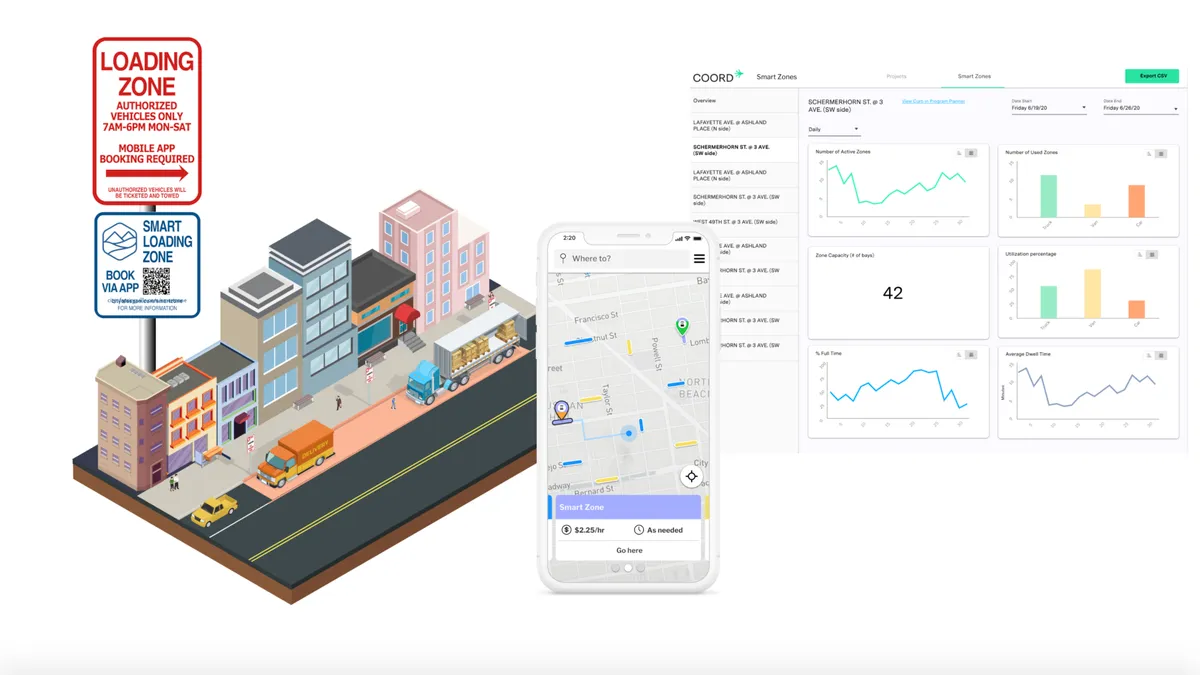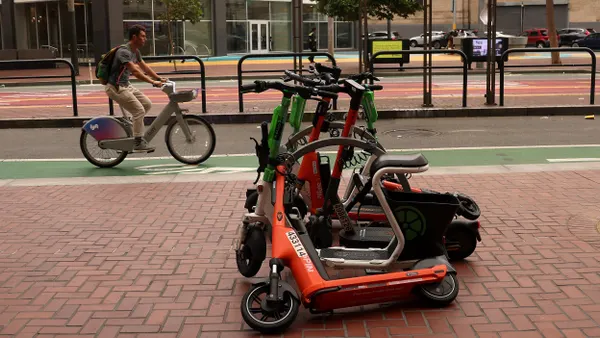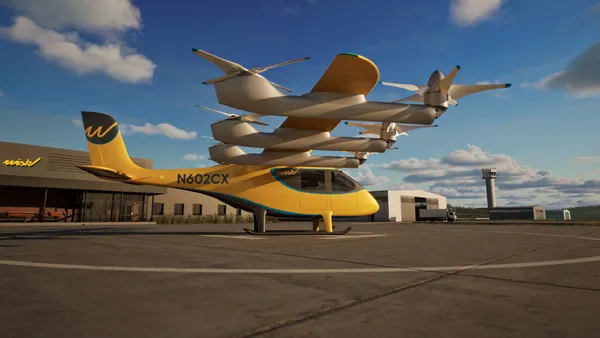Dive Brief:
- Sidewalk Labs-backed curb management company Coord has selected four cities to participate in its inaugural Digital Curb Challenge: Aspen, CO; Omaha, NE; Nashville, TN and West Palm Beach, FL.
- Each city will pilot a "smart zone" initiative to provide delivery and service vehicle drivers with mobile app data and information that will incentivize loading in safe and permitted curb locations. Cities can tailor their smart zones with time limits, hours of operations and prices, and drivers can use the mobile app to hold, pay for and extend their smart zone reservation.
- The challenge also includes nine North American cohort cities that will have a "front-row seat" to the pilot work: Vancouver, BC; Baltimore; Sarasota, FL; Bend, OR; Norwalk, CT; Fort Smith, AK; Halifax, NS; Portland, ME and Walnut Creek, CA. Cities interested in joining the cohort are welcomed to inquire by July 31.
Dive Insight:
Coord only intended to select three cities for the Digital Curb Challenge when it put out an open application call in January. However, demand was so high that the company expanded the opportunity, Dawn Miller, head of policy and partnerships, told Smart Cities Dive. She detailed the overall selection process, noting that each city was picked based on their unique challenges, their compatibility with Coord's solutions and their ability to "move quickly" in implementing the pilot.
Coord looked for cities open to charging fleets for use of the smart zones, which is a "really powerful tool" to expand loading capacity in a city and "reallocate space away from individual parking," she said.
"I’m kind of excited myself about the variety in the types of settings that the pilots will take place in because this kind of technology is new," Miller said. "The cities will be learning from it and so will we as we develop best practices through the pilot."
While this type of tech initiative in cities is fairly new, Coord faces some competition. Just this week, curb management platform curbFlow announced "overwhelmingly high" success of its six-month Loading Management Zone pilot in Columbus, OH — an effort that closely mirrors that of Coord's Digital Curb Challenge. Miller said that offerings from both companies vary, though she thinks it's "great" that competitors are also exploring this type of pilot as it's something "a lot of cities want to do."
The cities interested in these pilots are not all big cities, either. Those selected for Coord's smart zone pilot range in population sizes from about 7,500 residents (Aspen) to 693,000 residents (Nashville), while the associated cohort is made up of both small and medium-sized municipalities.
"Some people might initially think this is just a big city problem, but it’s not," Miller said. "It seems like even smaller cities, they have areas of their downtown where they really have these challenges and are interested in trying something new."
Miller said the participating cohort cities will have "meaningful, but manageable engagement" in the Digital Curb Challenge, with opportunities to share information and knowledge and connect with peers. Miller plans to set up a communication platform for all participating cities and educational sessions for those hoping to learn more about setting up their own loading zone pilots.
Delivery drivers play a crucial role in this program as well, but Miller said the "impetus for change needs to come from the cities." As the four pilots are slowly set up, each city will have the opportunity to select who will use the loading zones and how much they will be charged, if at all. As the pilots are developed, Miller said she is "very optimistic" that it will be helpful to fleets, and fleets will become more involved.
"On one hand it’s increasing regulations, but I think in doing that, cities are running a better service to the fleets," Miller said. "So that’s what I’m really excited to see is the fleet adoption and how we can really make it a product that meets both the cities' needs and the fleets' needs."











